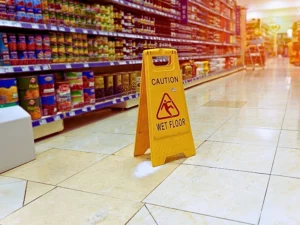In certain situations, the school can be held liable for negligent supervision when accidents occur at school. If the injuries are the result of unsafe conditions or were caused by another student or person and the administrators or teachers were not providing adequate supervision, for example, the school may be liable.
A School’s Legal Responsibility
Legally, school administrators and teachers have the responsibility and duty to provide adequate supervision while a child is in school or attending an extra-curricular activity sponsored by the school. The school is responsible for the protection of children from any form of harm or injury that could have reasonably been foreseen.The school must ensure it has sufficient staff to make sure students are effectively supervised while on the premises. Such staff includes teachers, bus drivers, hall monitors, crossing guards, and recess monitors.
When school employees do not uphold their responsibilities to keep kids safe, the school could be liable for damages. A personal injury lawyer may be able to obtain damages including money for medical care, therapy, medication, crutches, lost wages if the student had a job, and more.
This legal responsibility, however, is often subject to interpretation by the courts and they consider the circumstances of each case separately.
The School Is Liable in the Event of Injuries Caused by Dangerous Conditions
The school must make sure that children have a safe environment, which means eliminating any dangerous conditions that could lead to child injury.
Examples of dangerous conditions include slippery floors, the presence of toxic materials, unsafe equipment on the playground, frayed electrical wires within reach of children, unsanitary conditions in the cafeteria and restrooms, and so on.
The School Is Liable In Certain Cases When the Injuries Were Caused By Others
In certain cases when a child is injured by another student, the school can be held liable.
Furthermore, a school must make sure to vet all staff and ensure children aren’t being exposed to dangerous individuals. For example, the school could be held liable if a child is sexually abused by a teacher if the school knew the adult in question had a history of molesting children but still chose to hire said teacher.
Did the School Do Enough?
One of the most important factors taken into account by courts in the event of a child injury case is whether the event was foreseeable. If the school was aware of the danger but did nothing about it, then the school will be held liable.
For example, if the swing set on a school playground is clearly degraded and a child is injured because of it, then the school is liable because they were aware of the problem but did nothing to resolve it.
The same holds true for a child is injured by a school bully. If the aggressive student has a history of hurting other children and is not properly supervised by teachers, the school can be held liable for the other student’s injuries.
Even if the school was not aware of the aggressive tendencies of the bully, but he or she beat up another child on school grounds, during school hours, they can still be held liable for not providing adequate adult supervision in the area where the fight took place.
When a School Cannot Be Held Liable
In certain situations, a school cannot be held responsible for a child’s injuries.
If the injury occurs on the premises but it happens outside of school hours or official events, then the school cannot be held liable. For example, if two children are on the premises on a Saturday and one beats the other up, the school is not responsible because the school is not expected to provide supervision outside of school hours.
Another situation in which a school cannot be held liable is for any injuries that are incurred as the result of an organized sport. In such cases, the parents of a child cannot sue because athletes accept that there are certain risks involved in organized sports.
What About Public Schools?
Until recently, public schools were protected by government immunity, meaning they could not be sued in any case. Illinois does not grant public schools immunity but does lay out a set of strict rules regarding when schools can be sued. These rules are laid out in the Tort Liability of Schools Act and in the Local Government and Governmental Employees Tort Immunity Act.
In essence, the rules state that to sue, the school must have exhibited reckless behavior. For example, if a gym teacher ignores a note from a student’s doctor and forces him or her to engage in an activity that leads to an injury, then the parents can sue. However, public school educators cannot be sued for simple negligence.




